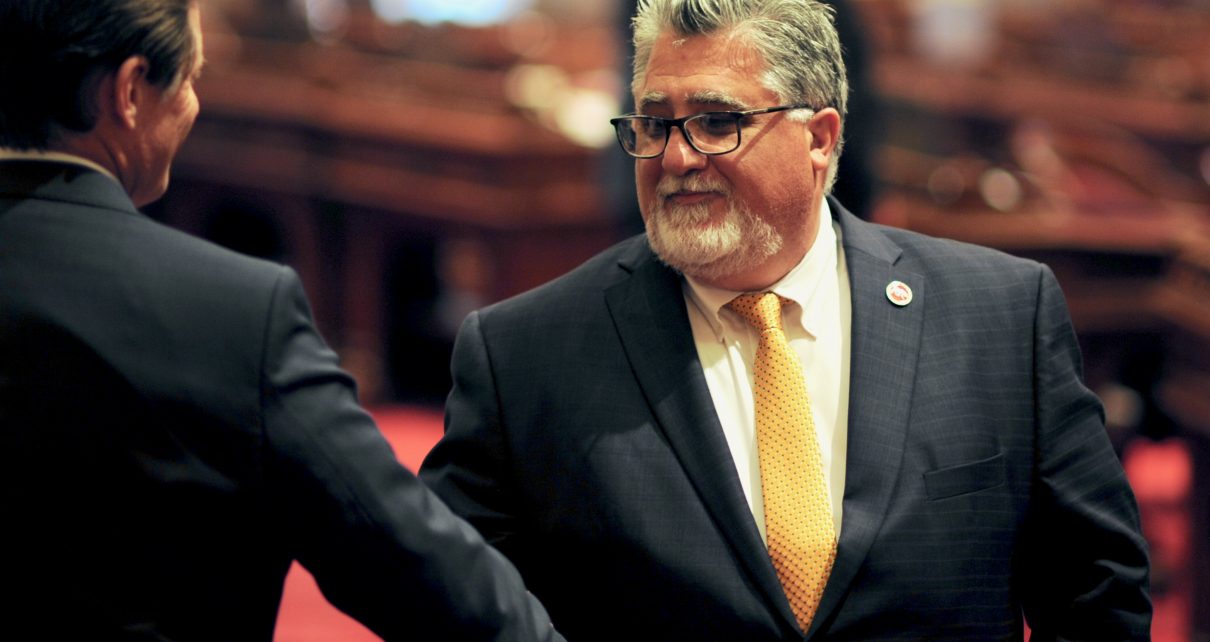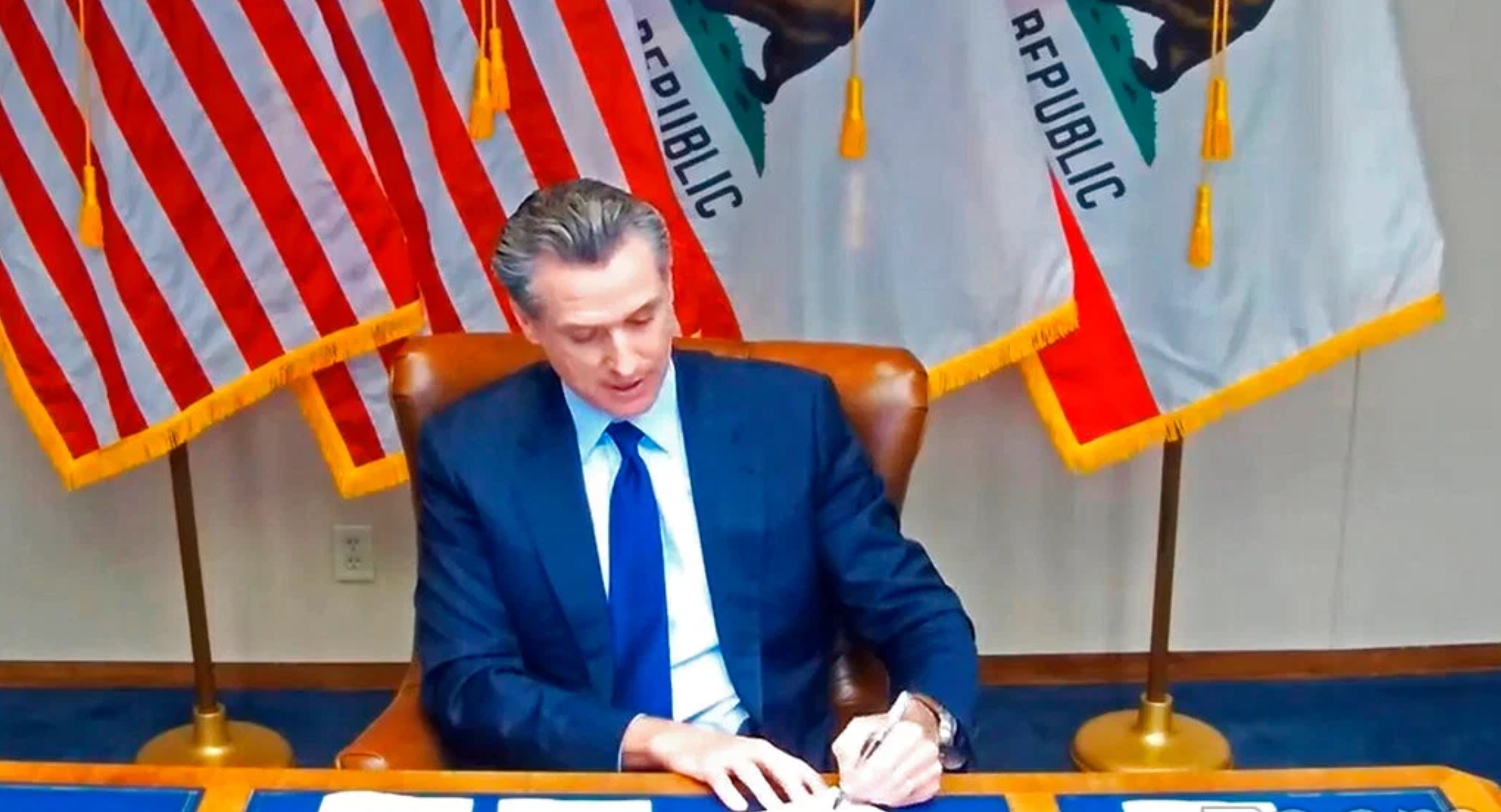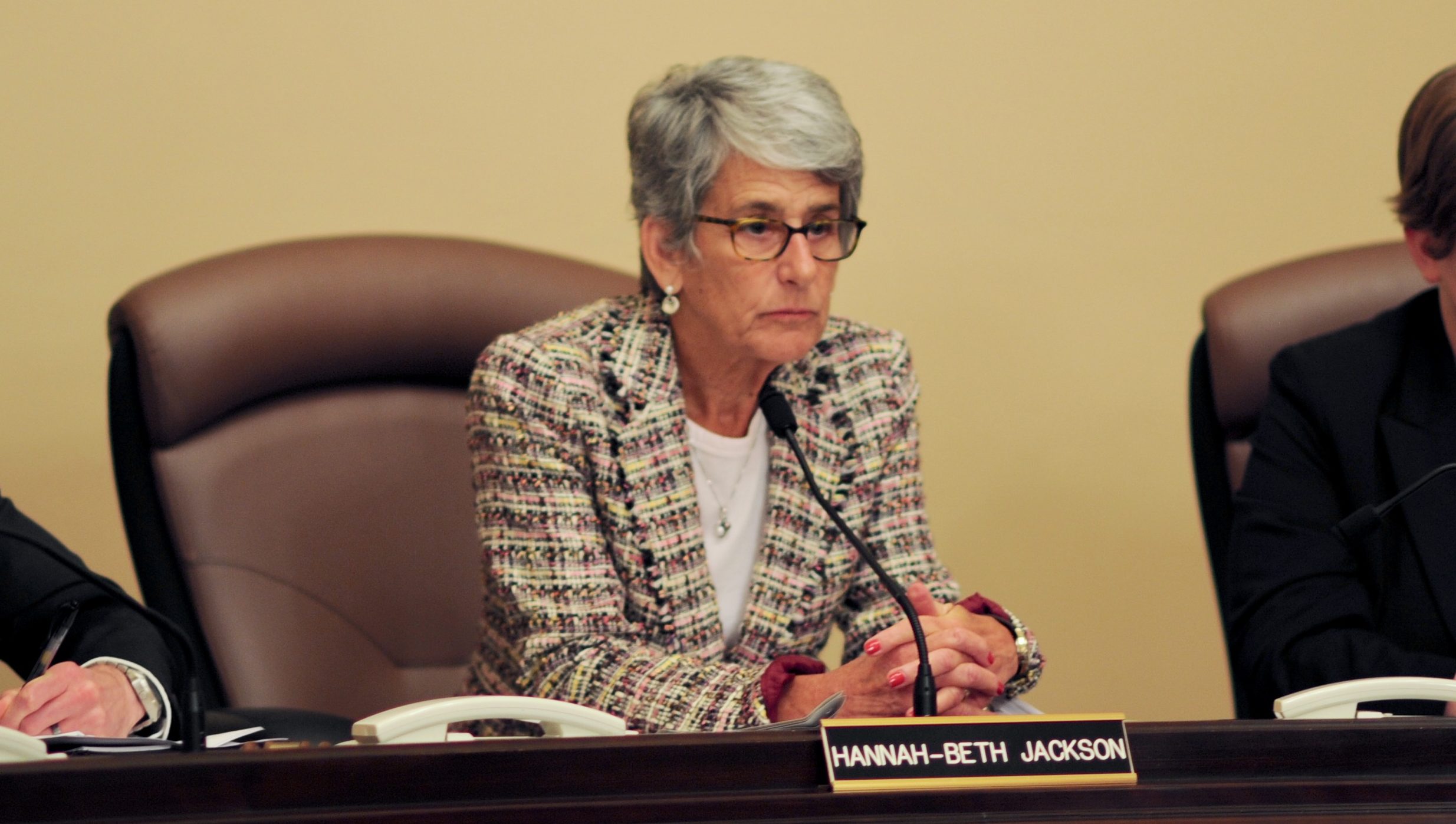
Senator Anthony Portantino. (Photo: Kevin Sanders for California Globe)
Gov. Newsom Signs SB 144 to Enhance Film and TV Tax Credits
The bill does include a tax increase
By Chris Micheli, July 21, 2021 3:52 pm
On July 21, Governor Newsom signed Senate Bill 144 by State Senator Anthony Portantino (D-Pasadena) to enhance California’s film and television tax credits. SB 144 is Chapter 114. The bill amends Sections 38.9, 17053.98, 19393, and 23698 and adds Section 17053.99 to the Revenue and Taxation Code. As a tax levy measure, SB 144 took effect on the day the Governor signed it.
Existing law provides a tax credit of 20% or 25%, to be allocated by the California Film Commission, for qualified expenditures for the production of a qualified motion picture in this state. SB 144 requires a qualified taxpayer to provide additional information, including data regarding the diversity of the applicant’s workforce, to be eligible for the motion picture credit. The bill would require an applicant with a production that is an independent film to include, in its application, a summary of the applicant’s voluntary programs to increase the representation of minorities and women in specified job classifications.
SB 144 increases the aggregate amount of credits that may be allocated for the 2021–22 and 2022–23 fiscal years by $15 million and makes these credits exclusively available to television series that relocate to California. The bill also increases the aggregate amount of credits that may be allocated for the 2021–22 and 2022–23 fiscal years by $75 million and makes these credits exclusively available to recurring television series.
SB 144 provides a 10-year credit of 20% or 25% from 2022 through 2031 for qualified expenditures for the production of a qualified motion picture in this state at a certified studio construction project. The bill provides that the credits be allocated by the California Film Commission in the same manner and time period as the existing motion picture credit. The project must pay prevailing wages and use a skilled and trained workforce. $150 million is allocated for this new credit.
SB 144 changes the due date and contents of the required report by the Legislative Analyst’s Office that evaluates the economic effects and administration of specified tax credits. The bill does include a tax increase.
Section One of the bill amends Revenue and Taxation Code Section 38.9 to change the Legislative Analyst’s Office’s report on evaluating the economic effects and administration of specified tax credits. The due date is moved from January 1, 2023 to May 1, 2023 and expands the list of tax credits that will be covered by the LAO’s study. It also expands the scope of the LAO’s study to include a summary of the workforce diversity information collected by the California Film Commission.
Section Two of the bill amends Revenue and Taxation Code Section 17053.98, under the Personal Income Tax Law, to require reporting of aggregate data for individuals whose wages are excluded from qualified wages including their gender, ethnic, and racial makeup, as well as data regarding the diversity of the workforce employed by the applicant on the qualified motion picture.
The California Film Commission is required to limit the amount of credits any recurring television series receives in a subsequent season to no more than the amount reserved in its prior fiscal year Credit Allocation Letter. There are special rules in the event that insufficient tax credits are available to fund all recurring television series for any fiscal year. The bill also expanded the information required for the established verification procedure.
In addition, the California Film Commission must submit a report to the Legislature, on an annual basis beginning January 1, 2022, on aggregate diversity information for the productions allocated tax credits allowed in this section and the diversity of the motion picture production industry in California more generally. For fiscal years 2021–22 and 2022–23, the CFC must allocate an additional $15 million in credits to be granted exclusively to television series that relocate to California. In addition, for fiscal years 2021–22 and 2022–23, the CFC must allocate an additional $75 million in credits to be granted exclusively to recurring television series.
For taxable years beginning on or after January 1, 2022, and before January 1, 2032, subject to allocation by the California Film Commission, there is a tax credit equal to 20 percent or 25 percent of the qualified expenditures paid or incurred during the taxable year by a qualified motion picture produced in the state at a certified studio construction project. The project provides for the construction or renovation of one or more sound stages located in the state. There are specified rules for the cost of construction or renovation for studio construction projects.
The bill provides requirements to be met by qualified motion pictures, including a diversity workplan with specified statements and goals. The CFC must approve or reject the diversity workplan of an applicant and cannot certify any tax credits until the CFC has received a final diversity report from the applicant. The total amount of credits that may be allocated under this subdivision is $150 million and a season of a series or feature film may not be allocated more than $12 million.
The CFC is required to establish certification procedures for studio construction projects. In addition, GO-Biz must adopt regulations to implement this paragraph of the law. The taxpayer must certify that a skilled and trained workforce was used to perform the construction work on the soundstage, and the soundstage will be continuously operated, maintained and repaired by a skilled and trained workforce, or a workforce that is paid the general prevailing rate of per diem wages.
Section Three of the bill adds Revenue and Taxation Code Section 17053.99 to specify that a taxpayer seeking certification of a certified studio construction project by the California Film Commission must make certifications, including that a skilled and trained workforce will be used to perform all construction work on the proposed project.
Section Four of the bill amends Revenue and Taxation Code Section 19393 to specify that this provision of law does not apply to a taxpayer for the invalidation of certain provisions that were amended or added by the act that added this subdivision.
Section Five of the bill amends Revenue and Taxation Code Section 23698 to provide the same provisions contained in Section Two of the bill, but is applicable under the Corporation Tax Law.
Section Six of the bill provides that the provisions of this act are severable. Section Seven of the bill specifies that no reimbursement is required by this act because the only costs that may be incurred by a local agency or school district will be incurred because this act creates a new crime or infraction, eliminates a crime or infraction, or changes the penalty for a crime or infraction. Section Eight of the bill provides that this act is a tax levy and goes into immediate effect after signature by the governor.
- What Information Has to Be on the LegInfo Website? - April 19, 2024
- New Assembly Bill Would Ban NDAs in Legislative Negotiations - April 19, 2024
- Frequently Asked Questions about California Bills Having Certain Provisions - April 19, 2024





Will anyone check for big campaign contributions that coincide with this tax revenue giveaway?
im sure hollywierd needs the money. the stars have fallen and no one is willing to lift them up, cept gavin and the brain dead. unfortunately for me i cant stomach watching film/music without something adversarial about said actor running in the background of my mind. the commercials alone make me ill. i have resorted to memorizing all the medformercial drug names and including it in my personal conversations with friends. just to see if they are paying attention to the deluge of propaganda. by the way simparica trio is not safe for puppys.